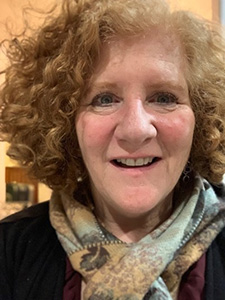Most people find employment opportunities through a network of people they know, and it is well documented that professional networking is an important investment in time to begin and grow one’s career (Augustine, Top Resume). In fact, the U.S. Bureau of Labor Statistics indicates that “85% of jobs are filled by networking making it a critical skill to develop on the road to employment.”

Networking allows people to establish and nurture long-term mutually beneficial relationships, learn about career options and developments, guide skill acquisition and development, maintain an awareness of changes in a particular industry and potentially lead to job opportunities (McIntyre, 2020).
Even in the best of circumstances, for a person with significant confidence and ability to articulate one’s thoughts and respond appropriately to social cues and nuances, networking can be challenging. For adults on the autism spectrum, networking is counter-intuitive and extremely challenging. By definition, individuals diagnosed with autism are likely to be challenged by social communication and have difficulty understanding the social cues that influence day-to-day interactions.
Networking requires actively listening to another person and then responding spontaneously to develop rapport. The art of networking is one of the harder skills to achieve, yet its value is undisputed and a skill worth developing amongst job seekers with autism. We know that adults with autism specifically are a disability population that has an extremely low rate of employment (Roux et al., 2015) and therefore, we implemented a curriculum to address the multiple challenges of job acquisition.
Our professional team at Yes She Can developed a curriculum to teach networking skills that assumed some level of success along with a willingness to provide significant preparation and reasonable dignity of risk. Preparing job candidates with autism for networking opportunities is multi-layered and cannot be rushed.
The thorough preparation included a series of mini workshops over the course of months that could be replicated in a variety of settings and provide the tools necessary for people with autism to succeed in their networking efforts.
Workshops were offered in multiple week chunks, scaffolding skills leading to networking opportunities. The workshops were broken down into the following topics:
- Exercises to enhance self-awareness of vocational preferences and interests including strengths, likes and dislikes, environmental setting awareness, need for direction, work hours and modes of available transportation
- Job exploration using videos and guest speakers from a variety of career avenues to help increase awareness of potential job possibilities
- Understanding the types of resumes used and completing a current resume
- Understanding and using LinkedIn as a networking tool
- Establishing an account that accurately reflected each person’s strengths, work and volunteer experiences, job interests
- Understanding the value of informational interviewing as a networking tool
- Development of and practicing appropriate interview and follow-up questions
- Managing one’s own anxiety via practice of skills in small group settings and in one-on-one settings
- Develop an understanding of the concept of active listening and moving from a prepared script to responding to an unexpected suggestion or information
Included in the networking curriculum was a segment on learning about and conducting informational interviews. We worked with Volunteer New York! to create a series of workshops with their corporate clients where the participants with autism could participate in multiple informational interviews.
Two community partners were identified (a financial services company and a pharmaceutical company) who each identified 18-25 employees interested in volunteering their time to help participants with autism practice informational interviewing. The volunteer employees were self-selected and worth noting was their direct experience with a person with autism, an interest in learning more about autism, a recognition that people with autism are an untapped human resource for employment needs and/or a general interest in “doing good.” Several volunteer employees expressed a recognition of the role of mentors in their own career development and had an interest in “paying it forward.”
Volunteer employees were matched with a participant in advance of the informational interviews. All participants researched the person they were interviewing on LinkedIn. With coaching support, specific relevant questions were developed in addition to the general questions that were identified during the workshop series on informational interviewing. Multiple opportunities to practice asking questions, revising follow-up questions, listening for unexpected responses, being aware of body language, and tone of voice were offered.
The series of remote informational interviews were held over several weeks. Each interview included an adult with autism, a volunteer employee, and a coach to support all participants in the interview process. Interviews were scheduled over Zoom for 30 minutes. Many of the volunteer employees were seasoned staff with higher level positions. Every effort was made to match these employees with participants where there may be a shared interest. Even when that was not possible, the expectation was that the experience of conducting an informational interview expands awareness of potential vocational fields, encourages adults with autism to practice appropriately engaging with strangers, expands one’s network, and helps to build self-confidence. And, by including a coach during each interview, the adults with autism reported feeling less anxious and had the opportunity to receive specific feedback about their interactions.
In general, both the volunteer employees and the participants described feeling a sense of satisfaction and intrigue in learning about each other and appreciation for the career lessons shared. More specific feedback included participants reporting feeling more confident in their ability to engage in appropriate conversation with others, feeling better prepared for future job interviews and an appreciation for their expanding network. Most participants in the informational interviews have connected with the volunteer employees via email or LinkedIn and in two cases have initiated a mentoring relationship.

Marjorie Madfis, MBA

Lesli Cattan, LCSW
The series of informational interviews ended in May 2021, and with time, we will assess its impact on employment acquisition. From this experience, participants have reported an increased self-awareness about their interests and strengths, have gained perspective about challenges, mistakes and successes in other people’s careers, expanded their knowledge of employment options and networking skills, and developed an increased sense of mastery and confidence.
Lesli Cattan, LCSW, is Director of Training and Marjorie Madfis, MBA, is Executive Director at Yes She Can, a nonprofit dedicated to helping young women with autism develop transferable job skills leading to employment and greater independence. Yes She Can operates its job skills training program at Girl AGain boutique. We welcome visitors to see our program in action at Girl AGain boutique, located at 4 Martine Avenue, White Plains, NY 10606. For more information, visit www.YesSheCanInc.org and www.GirlAGain.com. To learn more about Yes She Can’s job skills development program send email to info@yesshecaninc.org.
References
Augustine, Amanda, CPCC. CPRW, The Importance of Networking (and How to Do It Well), Top Resume
McIntyre, Michelle, Dec. 2020., 85% of Jobs are Secured Via Networking: Here’s How to Do it Right, Business2Community, (www.business2community.com/human-resources/85-of-jobs-are-secured-via-networking-heres-how-to-do-it-right-02368331)
Roux, Anne M., Shattuck, Paul T., Rast, Jessica E., Rava, Julianna A., and Anderson, Kristy, A. National Autism Indicators Report: Transition into Young Adulthood. Philadelphia, PA: Life Course Outcomes Research Program, A.J. Drexel Autism Institute, Drexel University, 2015.
US Bureau of Labor Statistics
Whetzel, Melanie, MA, Interviewing Tips For Applicants With Autism Spectrum Disorders (ASD), Journal of Vocational Rehabilitation, vol. 40, no. 2, pp. 155-159, 2014




